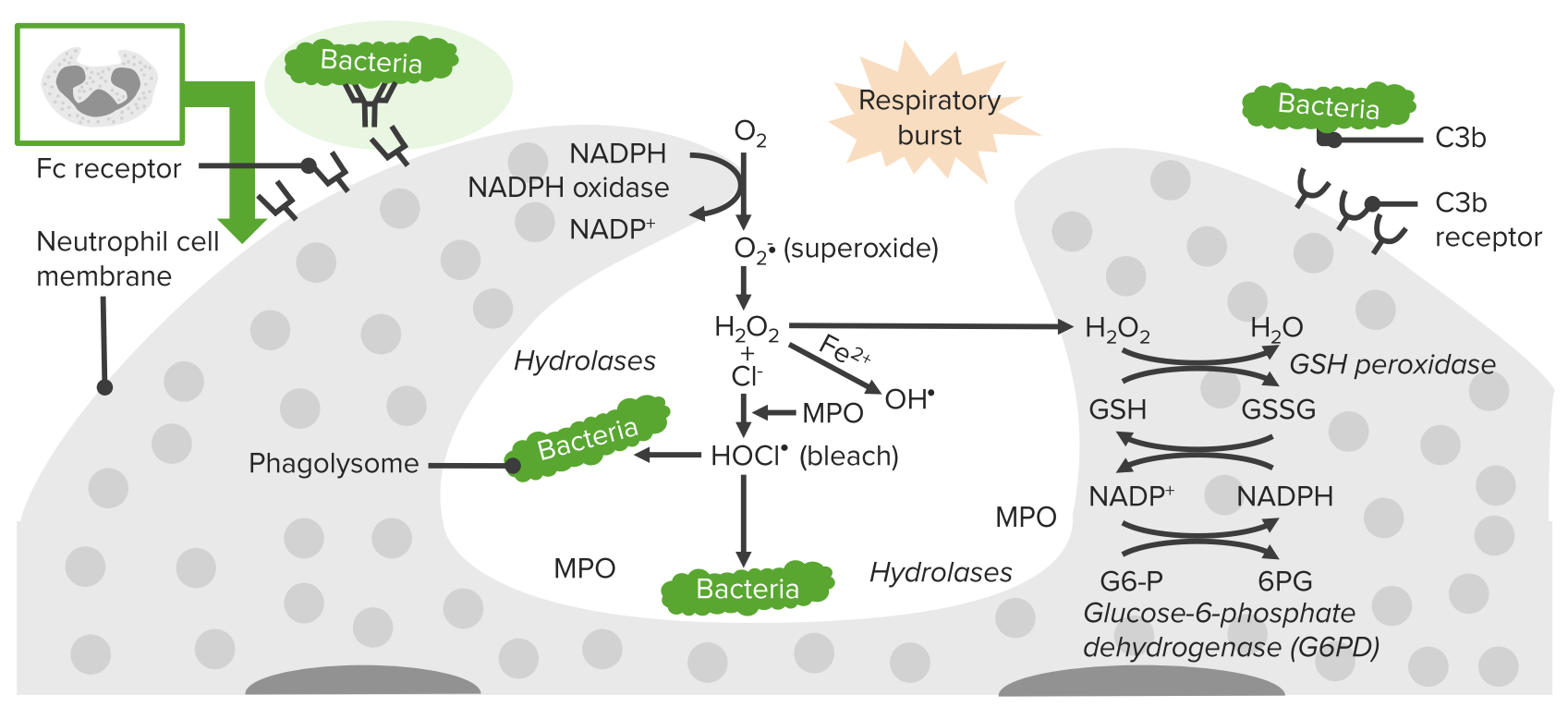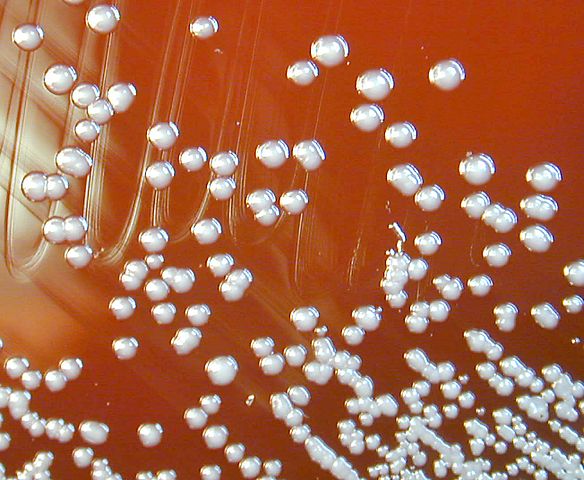Playlist
Show Playlist
Hide Playlist
Chronic Granulomatous Disease (CGD)
-
Slides CGD Pediatrics.pdf
-
Download Lecture Overview
00:01 In this lecture, I'm going to briefly review chronic granulomatous disease. 00:07 So, chronic granulomatous disease is a defect in NADPH oxidase. 00:13 What this means is patients have an inability to manufacture a superoxide free radical in their neutrophils and in their macrophages. 00:23 And as we know, this is how they break things down. 00:27 So they have a reduced ability to kill bacteria through encapsulation. 00:32 As a result, these patients form granulomas. 00:37 In many organs, that can cause problems and they have an immunodeficiency. 00:42 So these patients have a susceptibility to catalase positive organisms which can be remembered by the mnemonic BEANS. 00:51 These include Burkholderia species, such as Borkholderia cepacia, Enterobacteriacea, Aspergillus, Nocardia, and Staph aureus. 01:03 These are the ones that are a problem, and in particular, it's Staph aureaus that can rear its ugly head quite a bit. 01:10 So, these children will present typically before 2 years of age. 01:15 And they often will develop a pneumonia, such a staph pneumonia. 01:20 Remember, staph pneumonia looks a little bit different than classical pneumonia in that the children are much sicker and they can have a parapneumonic effusion or an abscess in their lung. 01:31 In fact, they can develop abscesses thoughout their body and in many organs. 01:37 These abscesses need to be drained and it can be very care-challenging. 01:42 They frequently develop cellulitis and it's usually Staph aureus. 01:47 Likewise, they can develop a septic athritis or an osteomyelitis. 01:52 Anywhere where staph can get, these kids will get it. 01:56 They often have bacteremia and they may occasionally have invasive fungal infections that can be challenging to treat. 02:04 So, how do we test for chronic granulomatous disease in children? The best test is the dihydrorhodamine test or the DHR. 02:14 So send some blood off for a DHR. 02:17 If phagocytes fluoresce, they are normal. 02:20 If they don't, we suspect chronic granulomatous disease and in most cases follow-up gene sequencing is indicated. 02:28 This test has replaced the older test which was the nitroblue-tetrazolium. 02:34 That's less commonly in use now. 02:37 How do we treat chronic granulomatous disease? We typically treat it with interferon gamma and we'll give them that during infections and as prophylaxis. 02:48 It's not cheap, but it's reasonably effective. 02:51 These patients generally require prophylaxis with trimethoprim/sulfamethoxazol for specifically Burkholderia. 03:00 And we'll give them antifungals as needed for their fungal infections, either topical or systemic. 03:07 So that's my brief summary of chronic granulomatous disease. 03:11 Thanks.
About the Lecture
The lecture Chronic Granulomatous Disease (CGD) by Brian Alverson, MD is from the course Pediatric Allergy and Immunology. It contains the following chapters:
- Chronic Granulomatous Disease
- DHR Test and Interferon
Included Quiz Questions
Which of the following is TRUE about chronic granulomatous disease?
- It results from several defects in the nicotinamide adenine dinucleotide phosphate (NADPH) oxidase enzyme complex.
- These patients have abnormal immunoglobulins.
- These patients are at risk for tuberculosis, hence the risk for granulomas.
- These patients are at increased risk of infection by catalase negative organisms.
- Typically patients present with urinary tract infections.
Which of the following is NOT a catalase positive organism?
- Streptococcus pneumoniae
- Borkholderiacepacia
- Enterobacteriacea
- Aspergillus
- Staphylococcus aureus
Customer reviews
5,0 of 5 stars
| 5 Stars |
|
3 |
| 4 Stars |
|
0 |
| 3 Stars |
|
0 |
| 2 Stars |
|
0 |
| 1 Star |
|
0 |
Very interesting and engaged lecturer who makes a complicated illness easier to understand! Thank you!
Excellent lecture as usual, I never heard of this disease before, so it expanded my catalogue of diseases.
this lecture was great, the Doctor has an amazing teaching skill!





